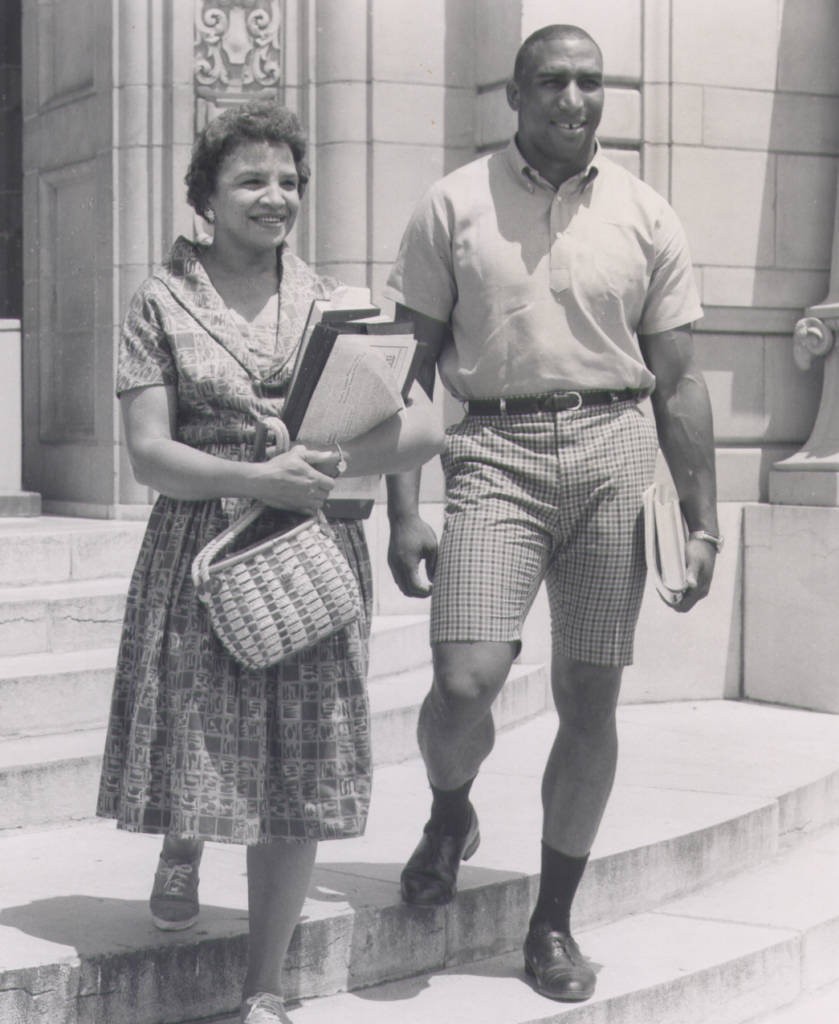Throwback Video Thursday: Curtis McClinton
Oct. 6, 2011
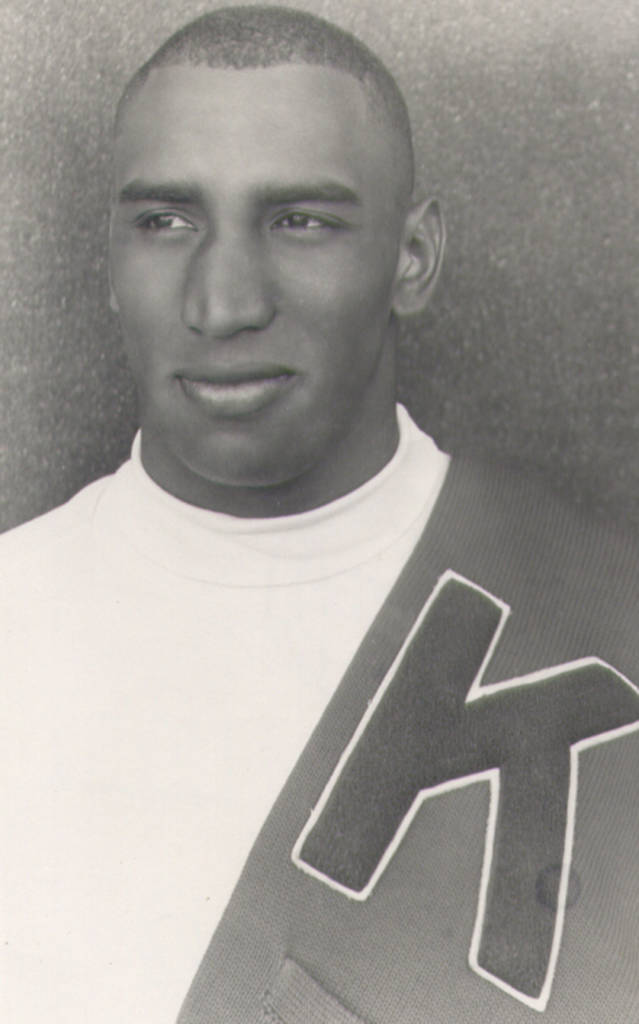
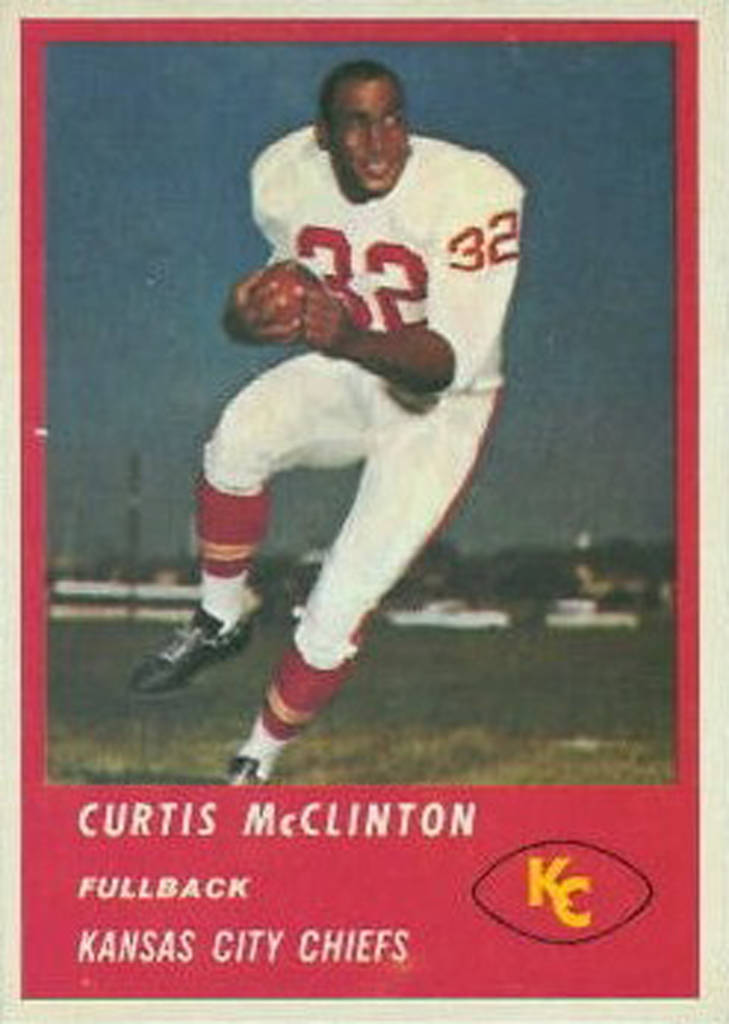 Curtis McClinton (Football, Track and Field 1959-61)
Curtis McClinton (Football, Track and Field 1959-61)
Curtis McClinton is one of the most decorated athletes to have played at KU. A star fullback from Wichita, Kan., McClinton rushed for 1,337 yards during his three year career with the Jayhawks before being drafted by the AFL’s Dallas Texans, who eventually became the Kansas City Chiefs. Football was not the only reason McClinton was well known inside Memorial Stadium as he competed in Track and Field during his time in Lawrence. #32 went on to have a successful professional career on the gridiron, playing in two Super Bowls with Kansas City.
McClinton eventually returned to Lawrence, where he earned his Master’s degree and Doctorate and then made numerous visits when he worked for the Executive Senior Service in Washington D.C. In 2004, he was inducted into the football “Ring of Honor” at Memorial Stadium and is one of only 16 players in school history to receive that distinction. McClinton, 72 currently lives in Kansas City with his wife Dee. The couple has been married for 38 years.
What made you decide to come to Kansas to play football?
“That decision was made pretty early for me, I would say probably when I was four years old. That’s because my parents moved from Bartlesville, Oklahoma to Wichita, Kansas during World War II. We settled in Wichita and I quickly become accustomed to Wichita State University because my junior high teacher, Linwood Sexton played there and was an All-American. I did end up going to WSU for one-year but the big thing was that I wanted to get away from home.”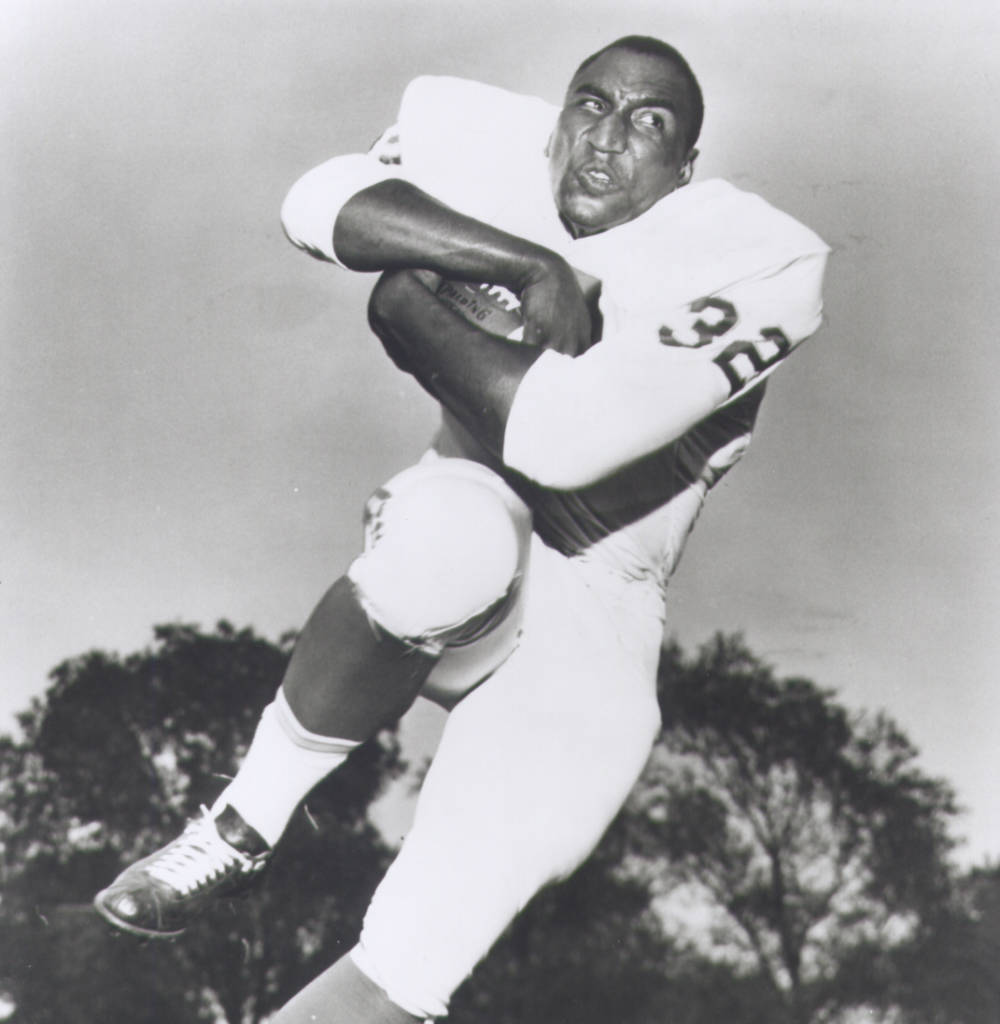
What was your most memorable game, while playing for KU?
“I think from the standpoint of dealing with something that is empirical or exceptional is when we played Syracuse.Guys like Ernie Davis were on that team and of course being a little country boy from Kansas, going to New York put me in awe. We went up there and quickly realized they put on their shoes and cleats the same way we did.”
What made the 1961 Bluebonnet Bowl team so special?
“There was leadership and vision and there was someone who could convey those two things to minds and the hearts of young kids. (Don) Fambrough and (Jack) Mitchell were empirical scholars and teachers, who knew that they were molding men that had the ability to come together and scratch and claw. Not only did those coaches believe it, but they put us in a pot with the toughest teams in America, such as Syracuse, New York University and California. We did not blink at anybody and that helped us as players to know that whatever the challenge is, we will take it on.”
What do you remember most from your time off the field at KU?
“The most synergistic time when I was at the University of Kansas was getting through Kinesiology. I learned that if I really focused and I really applied myself that I could absorb all the knowledge I had to. I also found out that I am a very practical and hands on type of person, which is why I learned so much in the lab. I also discovered that if I wanted to learn something, I had to put time into it. That’s why I never took those tough courses during football season. Instead I used the time that I was playing football as the time I could go to the lab.”
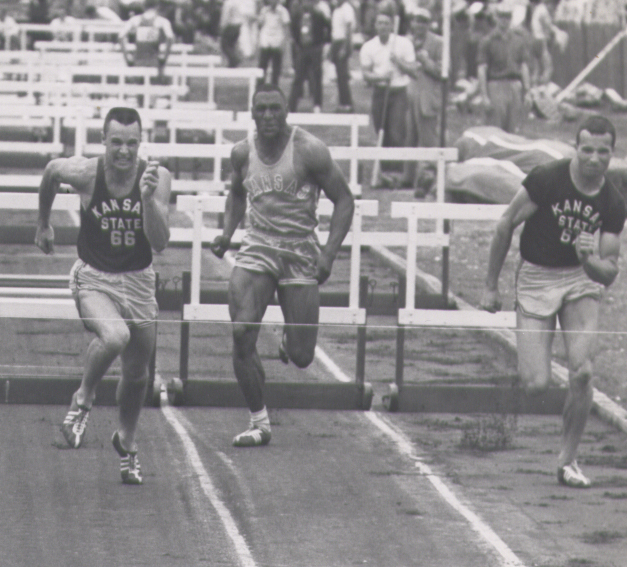 How has the University as well as the football program changed since you left?
How has the University as well as the football program changed since you left?
“I think the important thing to remember is that the university has continued to move forward in terms of its capacity and its curriculum as well as its affordability. I actually had the privilege of being a part of that whole metamorphosis when I was working in government for the Federal Senior Executive Service in Washington D.C. That is when I found out that KU had so many needs and I made sure they were met. Not only did I deal with education back then, but I dealt with certain issues of the football stadium, like safety and soundness of the structure.”
What you want your legacy to be?
“That I met the achievements and standards of this university, which are very high, but also that in competition with other universities outside of academia, I was able to shine a light and shine it bright. When I left this university, not only athletically, but also in regards to working in the White House with the Federal Senior Executive Service, I represented this university in regards to how it prepares boys to become men and compete on the world stage. So, what I represent is an athlete, a student and professional who earned his Bachelor’s, Master’s and Doctorate at the University of Kansas.”
What advice would you give to current student athletes at Kansas?
“This is the greatest university in the world. Great people come here to achieve and to find themselves and to learn. The important thing to remember is just like in a game, you fumble the ball, you go back, you pick it up and you keep going.” 